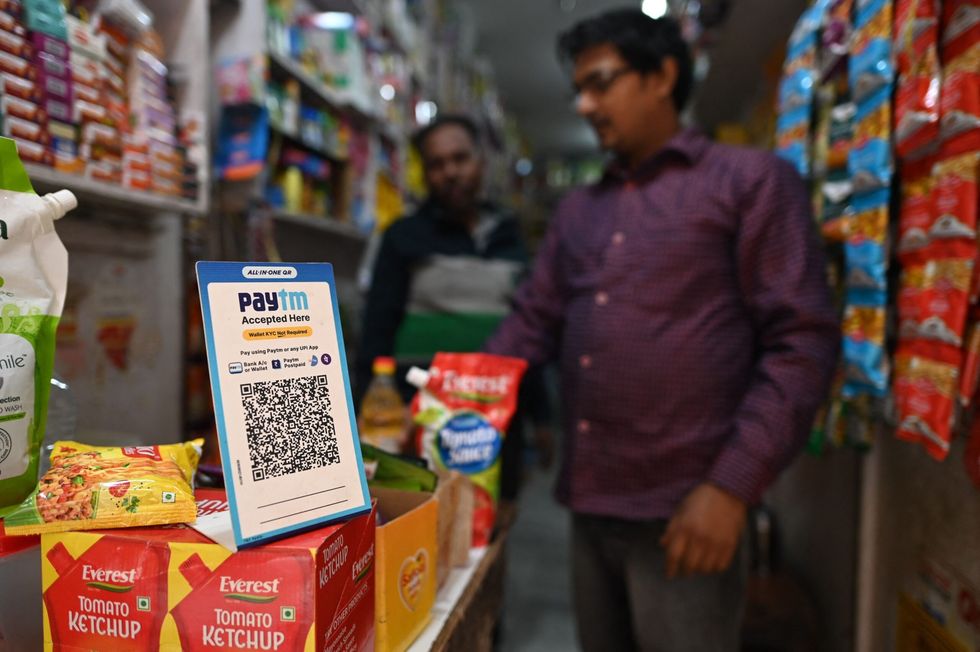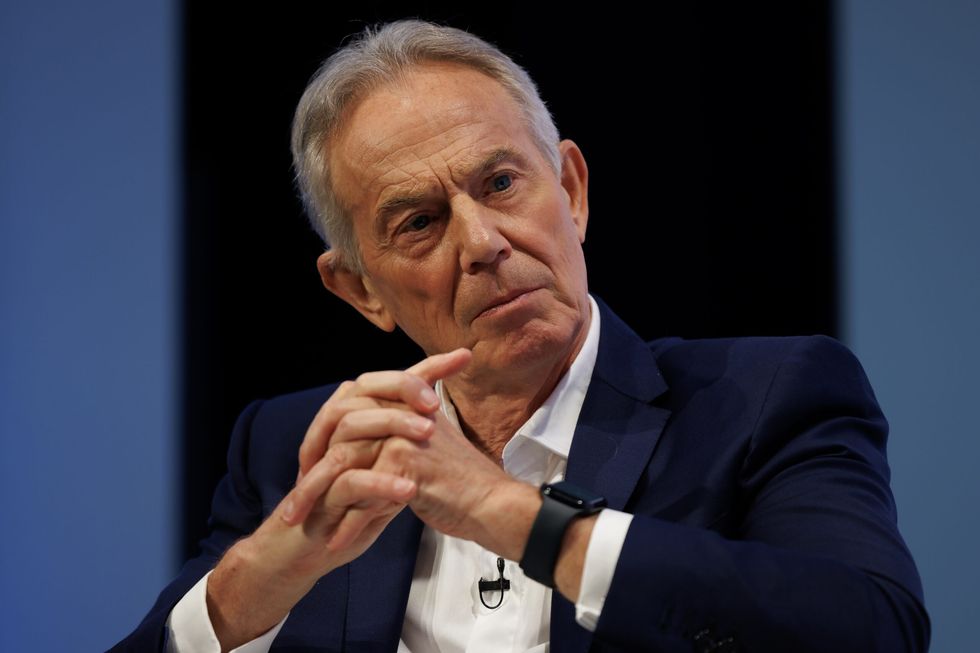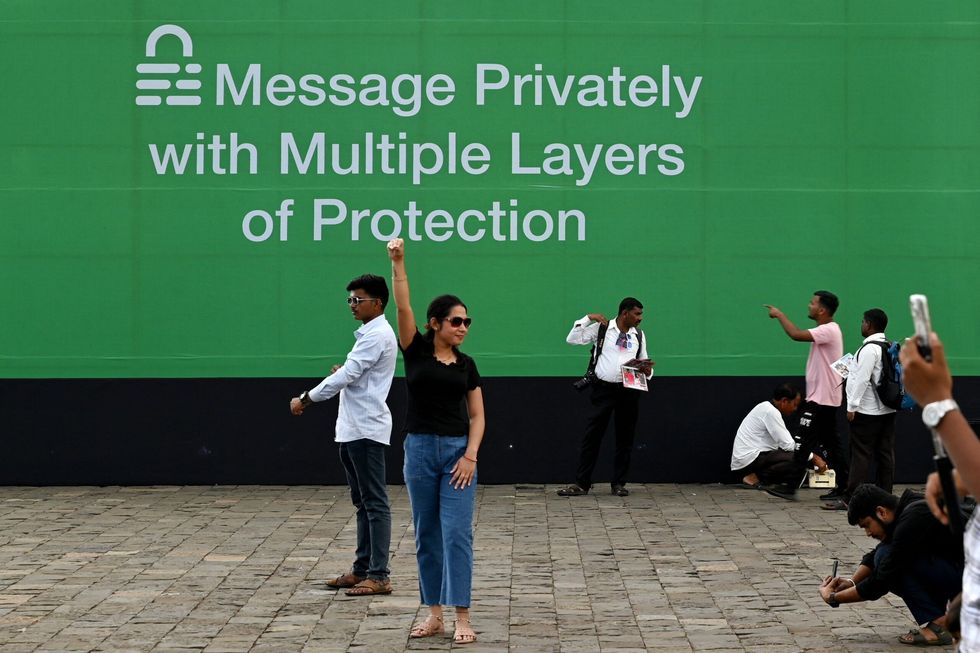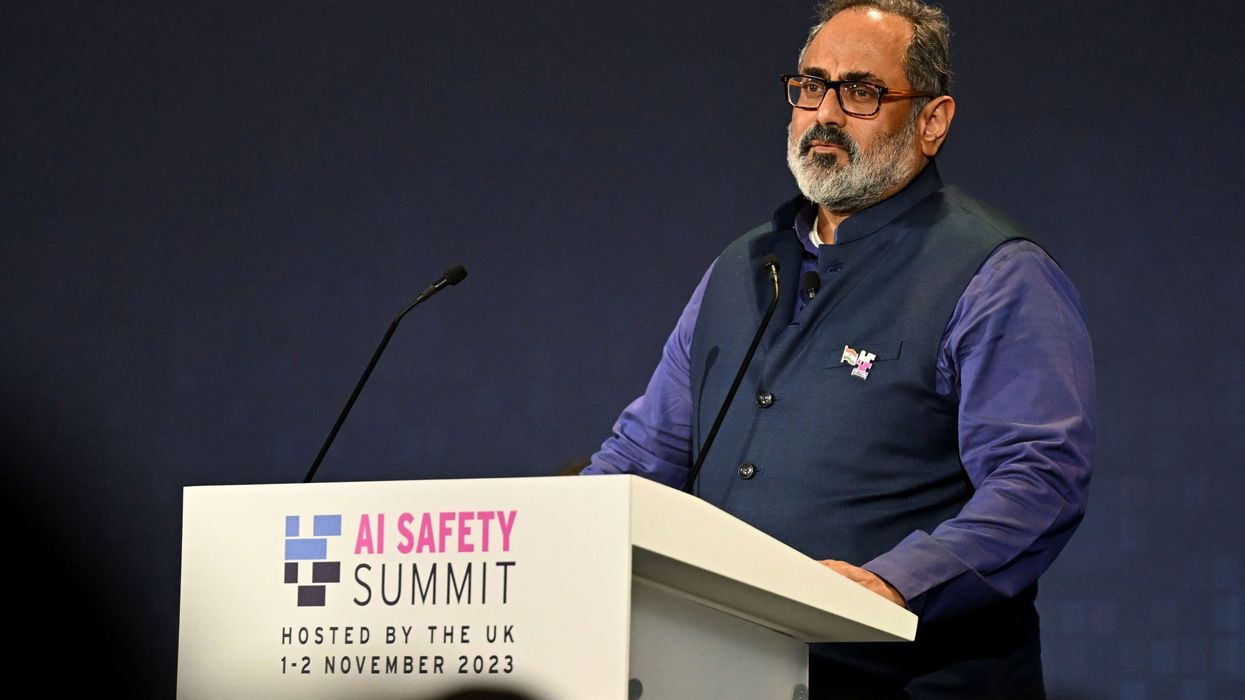INDIA’S former IT minister believes the country’s digital economy will be worth $1 trillion (£0.772tn) by 2027-2028 as the country targets getting its entire 1.4 billion population connected to the internet in the next two years.
Since 2015, when the Digital India programme was launched to transform services, the country has become a leading global fintech powerhouse.
Initiatives such as Make in India, Startup India, and Atmanirbhar Bharat (selfreliant India), have boosted the economy and positioned India as a global hub for tech innovation and manufacturing.
“A decade ago, just under 150 million Indians had access to the internet. Today, we have about 900 million Indians who are connected to the internet,” said Rajeev Chandrasekhar, India’s former minister of state for electronics and information technology.
He made the comments last week at the Tony Blair Institute for Global Change’s Future of Britain Conference 2024, while speaking in a segment titled ‘Governing in the Age of AI’.
Chandrasekhar said, “Digital economy is growing at the rate of 2.8 per cent because of the vision of prime minister Narendra Modi. His vision laid down in 2015 has played out well. We are already the fastest growing digital economy of the world. We are aiming to be $1 trillion digital economy by 2027-28.”
Chandrasekhar described India’s digital transformation as “unprecedented” with India achieving in nine years what would have taken 47 years under traditional progress metrics, according to the Bank for International Settlements (BIS).
The country’s digital public infrastructure (DPI) models – such as the unified payments interface (UPI) – has improved the ease of doing business for entrepreneurs and start-ups. India now boasts one billion mobile phone users, and with 96 per cent reduction in data costs, the country is among those with the lowest data costs worldwide. Such affordability has fuelled greater access and usage of digital services across the country.
Chandrasekhar noted how Aadhaar – the world’s largest ID system – had led to the entire population having a secure and verified digital identity. Indians can open bank accounts, make payments, access credit, conduct stock transactions, and purchase insurance policies in under a minute using their mobile phones.
Chandrasekhar revealed that when India initially started its digital revolution, there was pushback from parts of society who were resistant to change.

“I’m not the biggest fan of big tech, but one of the things it has done for all democracies and especially, open societies, is that they have – with YouTube and Facebook and WhatsApp – managed to help in the digital literacy process,” he said.
“There is already an organic process where people are learning, engaging, embracing tech, led by these big tech platforms. We ran a very large programme to cover rural India, especially women, to make sure they were embracing tech.
“They were being educated on digital literacy, and they were downloading these apps and using these apps and connecting to the government in a manner that they should.
“Over the last 10 years, we have built 55 million homes, of which 83 per cent homes are for poor people, and 80 per cent of those homes are owned directly by women. There are many, many adjacent benefits to digitalisation, which is empowerment and not empowerment in the abstract sense – but real empowerment, real wealth creation, real asset creation, for real people.”
India’s unified payments interface (UPI) – which allows users to transfer money instantly using their mobile phones – has also seen exponential growth, with transactions worth $2.4 trillion (£1.8tn) conducted in the fiscal year 2024.
This growth has enabled India to contribute 46 per cent of the global share in real-time digital payments, solidifying its position as a leader in digital finance.
However, digital payment frauds in India saw a more than fivefold jump to $175 million (£135m) in the year ending March 2024 from the previous period, according to the federal Reserve Bank of India’s annual report.
Chandrasekhar insisted that data protection is at the forefront of the Indian government’s long-term plans for digital development. “This is a false binary, that somehow privacy and digitisation are contradictions. You can address issues of privacy, the rights to privacy, data protection, as well as digitisation by crafting principle led guardrails that are embedded in law, which is exactly what we have done,” he said.
“We have a data protection law. We have created the guardrails that are required to protect an individual’s right to privacy, an individual’s right to own his or her data, as well as accelerate and deeply embed the technology in government and governance. People who say that somehow digital ID automatically implies a violation of personal information privacy have not read the last two chapters of the book that they’ve been reading.”
Chandrasekhar predicted that the next step in India’s technological growth will be to explore the full potential of artificial intelligence (AI). India recently launched the National AI Portal and the National AI Strategy aim to foster AI research, development, and deployment across the country.

AI expenditure in India is expected to reach $11.78bn (£9.09bn) by 2025 and add $1 trillion (£0.772tn) to India’s economy by 2035, according to the World Economic Forum. In the healthcare market alone, AI is projected to grow from $14.6bn (£11.2bn) in 2023 to $102.7bn (£79.2bn) by 2028.
“Technology is the biggest leveller in the recent years in the disparity between the north and the global south. The gap between these two blocks of countries – if you want to call it that – is being levelled and equalised by technology in a manner that we haven’t seen happen for decades,” the former minister said.
“I was at the AI Safety Summit (in Bletchley Park, Milton Keynes) a few months ago and it is clear that even the smallest of countries, whether they are in Africa, whether they are in South America or in Asia, they all aspire to the power of tech and the power of AI, not just to improve governance, but create their own innovation ecosystem, create start-ups, be a participant in certainly and shaping the future of the world.
“For the first time, regardless of the size of the country, you are potentially a player, if you have the political leadership, in shaping the future of the economy and future of tech.”
At the conference, Sir Tony Blair told UK prime minister Sir Keir Starmer that the new Labour government needs to embrace AI as a “game-changer” in fuelling economic growth.
“The spread of the application of AI by the private sector and its encouragement by appropriate government policy is the only answer to Britain’s productivity challenge and, over time, it can turbocharge growth,” said Blair.
“Over two terms of government, we estimate the savings run into the tens of billions, allowing us to get growth back to the levels it was in the early part of the century. This 21st-century technological revolution is the real-world fact that will change everything. The question is whether we have the imagination to harness it. The companies and countries that do will prosper, and those that don’t will fall behind.”
Chandrasekhar said, in his view, the UK was being left behind in the AI revolution. “The UK has, and I say this at the risk of offending people, has slipped on the overall innovation ladder. I’m not using any metric or any report, it’s just my gut feeling,” he said.

“At the AI Safety Summit, it was quite clear there are countries that were, in a sense, banking on the weakness of some of the leading nations of the world in this area to take the leadership. It’s important that in this the next decade, this coming wave of AI, democracies like the UK, have to step up and play a leading role.
“In the past it was about geopolitics and security. As we look to the future of global trade, global digital protocols and agreements, any country who is not relevant in the AI conversation, is a country that is going to find themselves broadly irrelevant in terms of talking about the future of economy,” he added.




